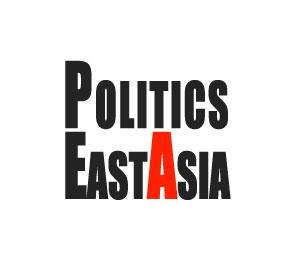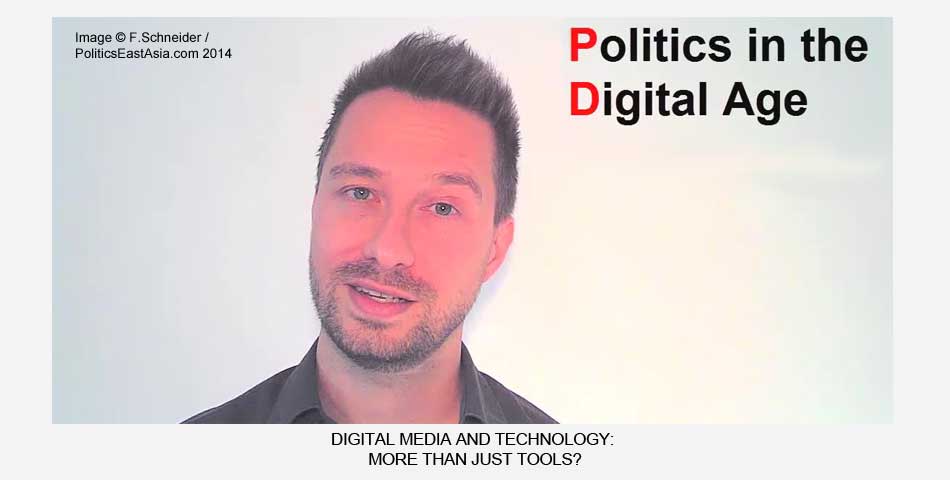The Politics of Digital Tools
What Decides How We Use Digital Media Technologies?
On 27 November 2014, I had the pleasure to participate in a debate at Leiden University’s Leiden Global Day, together with Mirko Schäfer. This video reproduces the short talk I gave there on the various factors that I think we should keep in mind when we discuss digital technologies and media. Much of the debate about digital communication has moved away from earlier arguments that digital media are either liberation technologies or mechanisms of oppression (for a brief overview, see Schneider & Goto-Jones 2014). Instead, it has become more popular to talk about such technologies as tools that can be used for a range of different things in different contexts.
I find this view very helpful, but as I discuss in this video, it does not tell the whole story. What a tool can or cannot be used for is subject to a number of complex constraints, which include political pressures, economic incentives, technological affordances, and human psychology. Authors in the tradition of Actor-Network-Theory (Latour 2005) even go as far as treating tools as actors in their own right, asking what technologies “do” when we use them.
Drawing from my own research on Digital Nationalism in China and China’s media system, as well as from some of the work that my colleagues and I have been doing on digital Asia and digital humanities in Leiden, the video provides illustrate what factors shape how we deploy digital tools in our societies today. Below is a short list of literature I have used for this topic, in case you’d like to read more about this exciting subject.
References
Benkler, Yochai (2006): The Wealth of Networks – How Social Production Transforms Markets and Freedom. New Haven & London: Yale University Press.
Latour, Bruno (2005): Reassembling the Social – An Introduction to Actor-Network-Theory. Oxford & New York: Oxford University Press.
Lichfield, Gideon (2014): “Tiny Island of Sanity – There Is Only One Major News Site that Both Pro-Israelis and Pro-Palestinians Read“. Quartz, 4 August 2014.
Negroponte, Nicholas (1995): Being Digital. New York: Vintage Books.
Pierson, Emma (2014): “See How Red Tweeters and Blue Tweeters Ignore Each Other on Ferguson“. Quartz, 25 Nov 2014.
Rogers, Richard (2013): Digital Methods. Cambridge, MA: MIT Press.
Schneider & Goto-Jones (2014): “Revisiting the Emancipatory Potential of Digital Media in Asia – Introduction to the Inaugural Issue of Asiascape: Digital Asia”. Asiascpae: Digital Asia, 1(1/2), 3-13.
Schneider, Florian (2015): “Searching for ‘Digital Asia’ in its Networks: Where the Spatial Turn Meets the Digital Turn”. Asiascape: Digital Asia, 2(1/2), 57-92.
Sunstein, Cass R. (2001): Republic.com. Princeton: Princeton University Press.
Zuckerman, Ethan (2013): Rewire: Digital Cosmopolitans in the Age of Connection. New York: W. W. Norton.
Share This Post, Choose Your Platform!
4 Comments
Comments are closed.



[…] of media as “tools”. You can click your way through the original slides below, and a short video version of this talk is also available on […]
[…] of our journal is not only provocative because of the term ‘Asia’. It also forces us to address the meaning of the ‘digital’ – a category that is equally contested. On the one hand, creators and users alike often celebrate […]
thanks for sharing, it is very useful. I conduct a reserach on one of ethnic minority group in China on how they use the tool of WeChat to negociate their minzu identity.
That’s very exciting. You’ll have to let me know what you find. WeChat is (as of yet) still largely under-researched.
As for the minzu topic, you’re probably already familiar with the book ‘Coming to Terms with the Nation‘; if not: I can recommend it.
Best – FS